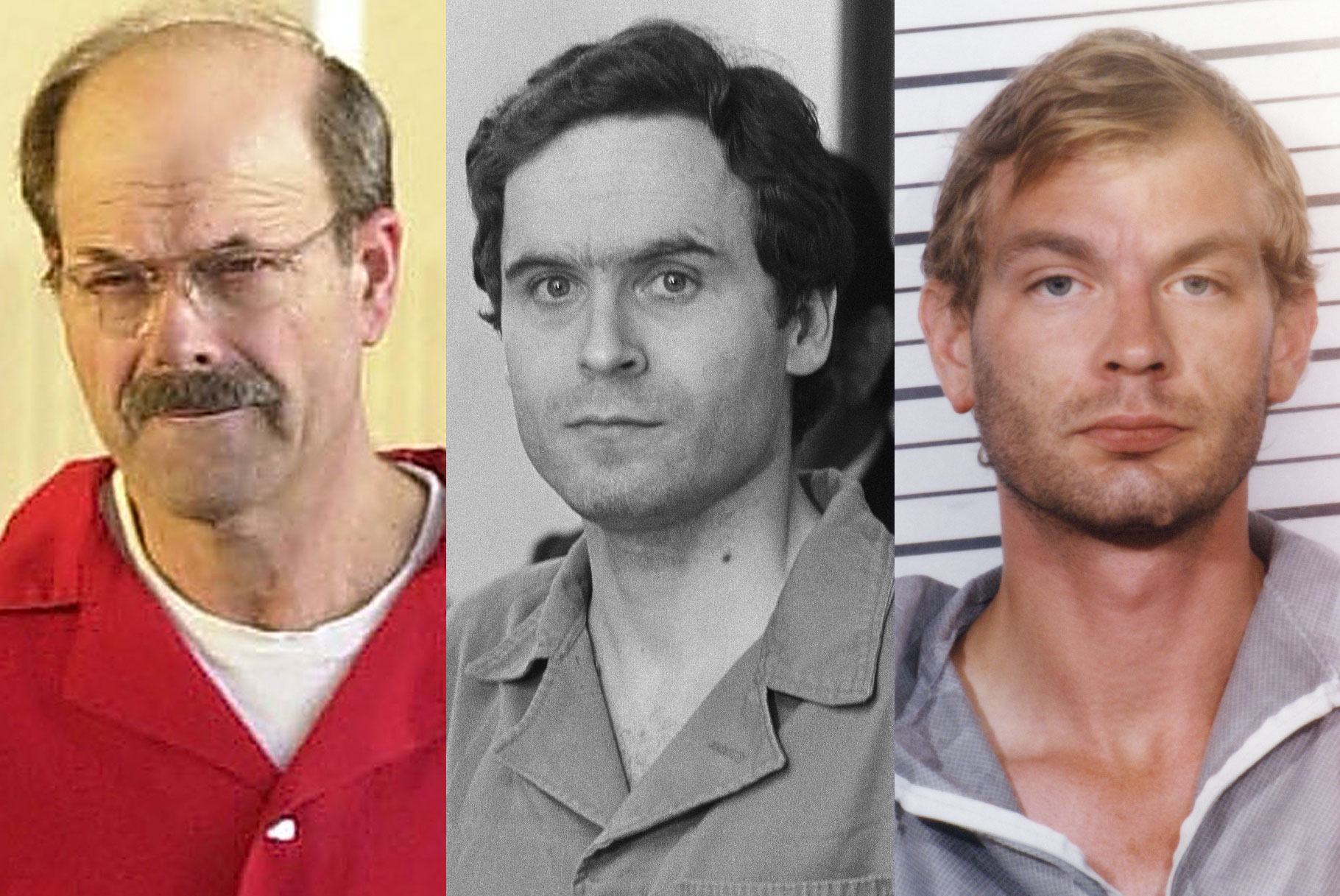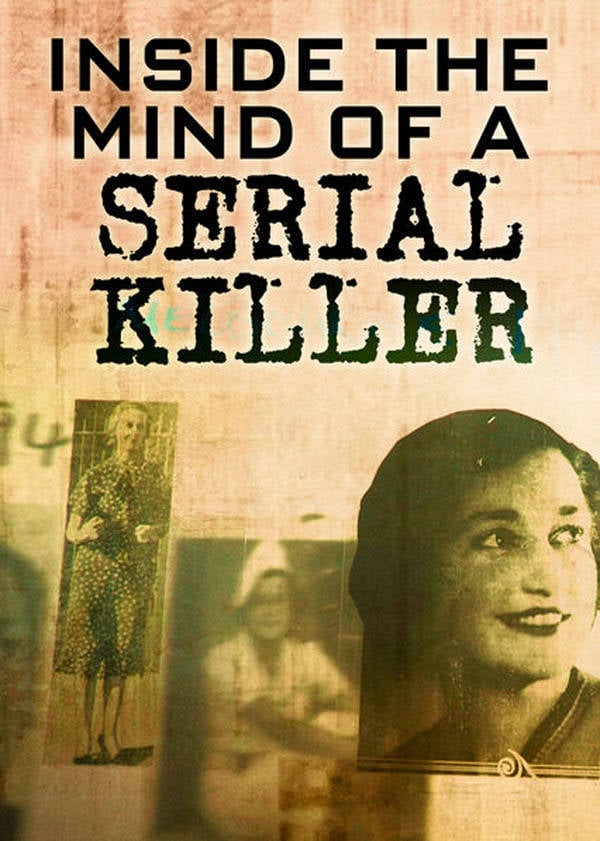Exploring The Grip Of Serial Killer Documentaries
There's something about the true stories of dark minds that, for many, holds a powerful draw. You might wonder why we find ourselves so captivated by tales of human behavior at its most extreme. It's almost as if we're trying to make sense of things that defy easy explanation, to peek behind a curtain we hope never to encounter in real life. These documentaries, you know, offer a unique window into these chilling realities, often leaving us with more questions than answers.
So, what is it about these particular stories? Perhaps it's the puzzle, the desire to understand the "how" and the "why" behind truly horrific acts. We look for patterns, for clues, or maybe just for a way to process the fact that such darkness exists. The way these films and series are put together, they really pull you in, offering details from investigations, interviews, and sometimes even the thoughts of the individuals involved.
For instance, think about the impact of something like "Serial," a podcast that, in a way, really changed how many people looked at true crime storytelling. It came from the creators of "This American Life," hosted by Sarah Koenig. "Serial" tells one true story over a season, and it's that deep dive into a single case, like Adnan Syed's, that can be so utterly gripping. It really digs into the criminal justice system itself, which is a bit different from just focusing on the killer, yet it shows how complex these situations can be.
- Snoop Dogg Police Record
- Cost Of Dragon Fruit
- Having Fun Life Quotes
- Longest Ft Call 2024
- Define Lavender Marriage
Table of Contents
- The Enduring Appeal of True Crime
- What Makes a Documentary Stand Out?
- Where to Find the Best Stories
- The Psychology Behind the Fascination
- FAQ About Serial Killer Documentaries
- Looking Ahead in True Crime Storytelling
The Enduring Appeal of True Crime
People have always been drawn to stories of crime, but there's a special kind of pull when it comes to the real events. We want to know the details, the twists, and the turns that led to such terrible outcomes. It's a way, perhaps, to explore the darker parts of human nature from a safe distance. These documentaries, you know, they give us a glimpse into worlds we hope we never truly experience.
The interest isn't new, but the ways we get these stories certainly are. From classic books to the latest streaming series, the appetite for true crime seems to just keep growing. It's not just about the shock value, though that can be a part of it. Often, it's about understanding the motivations, the investigative process, and how justice, or sometimes the lack of it, plays out. We are, after all, curious creatures.
Think about the cases that stick with us, like those of Ted Bundy or Jeffrey Dahmer. These names, they bring up so many thoughts and feelings for many people. Documentaries about them try to piece together the events, to show the human impact, and to really explore the backgrounds of these infamous individuals. It's a bit like trying to solve a very difficult puzzle, actually, one that has real-world consequences.
- Peyton Manning Home In Denver
- Is Brittney Griner A Man Or Woman
- Nicole Jimeno 90 Day Fiance
- First Date Outfit Dinner
- Does Kevin Durant Have A Twin Brother
What Makes a Documentary Stand Out?
Not all true crime stories are created equal, and the same goes for the documentaries that tell them. The best ones, they do more than just recount facts. They often bring in new perspectives, dig deeper into the evidence, or present the story in a way that makes you think about bigger issues. It's not just about the grisly details; it's about the broader picture, too.
For example, "Serial" really showed how a podcast could change the conversation around a case. It looked at the high school scene, the changing statements to police, the prejudices, the shaky alibis, and the limited forensic evidence. All of it, in a way, led back to those basic questions: How can you really know? This kind of storytelling, you know, adds layers to the experience, making it much more than just a simple retelling.
The power of a good documentary often lies in its ability to reveal something new. In Adnan's case, for instance, a prosecutor later found two handwritten notes that changed everything. Asia's affidavit, written after she heard about the case on "Serial," reaffirmed she saw Adnan in the library on the day Hae disappeared. This kind of detail, you see, can truly shift how we view a story, adding to its depth and impact. It shows that these stories are not always neatly tied up.
Where to Find the Best Stories
With so many streaming options out there, finding your next true crime obsession is easier than ever. There are platforms that seem to specialize in this kind of content, offering a wide array of choices. Whether you prefer docuseries that unfold over several episodes or standalone films, there's a lot to explore. It's pretty amazing, actually, how much is available right now.
Streaming Platforms and Their Offerings
You can find many of the best serial killer documentaries streaming on Netflix, Amazon, Peacock, HBO Max, Hulu, and Prime Video. Each platform, you know, has its own collection, from well-known cases like Ted Bundy and Jeffrey Dahmer to those that might be less familiar but just as chilling. These services have really cornered the market on murder content, as some might say.
For instance, if you're looking for shows that will keep you up at night, Netflix has a strong selection of serious series worth your time. Hulu also offers its own compelling true crime documentaries, like "Scamanda" or those about the Menendez brothers. It's a good idea, you know, to check out what's new on these platforms, as they are always adding more stories.
Some lists of the "best" documentaries, like those based on IMDb ratings, can give you a good starting point. My own personal collection, for example, of what I feel are some of the best documentaries in the 'serial killer' genre, isn't based on scientific calculations but more on what truly resonates. It's a bit of a personal journey, really, finding the ones that stick with you.
Beyond the Screen: Podcasts and More
While visual documentaries are popular, podcasts offer a different kind of experience. "Serial," as we talked about, is a podcast that really changed the game for many. It's a great example of how audio storytelling can be just as powerful, allowing you to focus on the narrative and the details without visual distractions. You can learn more about this type of immersive storytelling on our site, which is pretty neat.
There are also many playlists out there, like those dedicated to "the most diabolical, twisted serial killers of all time," featuring figures from Bundy to BTK to Gacy. These collections, you know, can be a great way to discover new content or revisit classic cases. "True Crime Central," for example, has a large collection of full-length serial killer documentaries that people watch a lot. It's almost like a library for these kinds of stories.
These various forms of media, they really help us step inside the chilling minds of the world's darkest serial killers. They are illuminating and deeply creepy, exploring the dark side of human nature. You can find many of these docs on a playlist for the most diabolical, twisted serial killers of all time, which is a good place to start for many. You can also link to this page for more insights into the genre.
The Psychology Behind the Fascination
Why are we so drawn to these stories? It's a question many people ask. Some say it's about trying to understand evil, to grasp something that feels so far outside our normal experience. Others suggest it's a way to feel safer, by learning about the dangers that exist in the world, you know, almost like a form of preparation. It's a very human response, in a way, to the unknown.
The interest can also come from a sense of justice, or a desire to see how investigations unfold. We often root for the good guys, for the detectives and prosecutors trying to solve these cases. It's a bit like watching a real-life mystery play out, but with much higher stakes. The human mind, you see, is naturally curious about puzzles, especially those that involve other people.
For some, the appeal might be the psychological aspect, trying to piece together the motives or the background of the individuals involved. From Jeffrey Dahmer and Ted Bundy to H.H. Holmes, the stories of these figures continue to satisfy curiosities about these infamous true crime cases. It's a complex mix of emotions and intellectual curiosity, really, that keeps us watching and listening.
FAQ About Serial Killer Documentaries
People often have questions about these kinds of shows. Here are a few common ones:
Are serial killer documentaries safe to watch for everyone?
Well, these documentaries can be very intense and contain graphic details, so they are not for everyone. It's a good idea to consider your own comfort level with disturbing content before you start watching. Many people find them unsettling, and that's perfectly normal.
What makes a true crime documentary good?
A good true crime documentary often brings new information to light, offers different perspectives, or explores the broader societal issues connected to the crimes. It's about more than just the facts; it's about the storytelling, the research, and the impact on people's lives. It really makes you think, you know?
Where can I find reputable information about true crime cases?
You can find reliable information from established news organizations, academic studies, and well-researched books. Documentaries themselves, if they are from reputable creators, can also be a good source. For example, "Serial" from the creators of "This American Life" is a highly regarded source for its in-depth investigation. You might also check out FBI publications for statistics and insights into criminal behavior, which is a very official source.
Looking Ahead in True Crime Storytelling
The way we tell and consume true crime stories is always changing. Today, in June of 2024, there are more options than ever, and creators are finding new ways to explore these difficult topics. From deep dives into the criminal justice system, like what "Serial" tried to do, to focusing on the victims and their families, the genre continues to grow and evolve. It's a fascinating area, really.
The future will likely bring even more innovative storytelling, perhaps using new technologies to present evidence or connect with audiences. The demand for these illuminating and deeply creepy stories, you know, seems to remain strong. People want to understand, to learn, and to process the darker parts of our shared human experience. It's a powerful thing, this curiosity about the truth.
- Old White Male Actors With White Hair
- Sample Application Letter For Security Guard
- Gay Black Guys
- Sympathy Quotes Loss Of A Mother
- Who Is Gods First Angel

The Best Serial Killer Documentaries To Watch On Oxygen | Crime News

The 20 Best Serial Killer Documentaries To Give You Nightmares
:max_bytes(150000):strip_icc()/worlds-most-evil-serial-killers-113023-ff2d1d5908b54c4da71983be10ecb237.jpg)
The 25 best serial killer documentaries